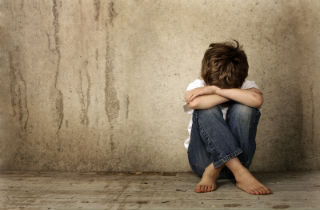By Dr. Maria Elizabeth Weidmer-Mikhail, MD
The Statistics on Addiction and Children
With approximately 18 million individuals in the U.S. addicted to alcohol, The National Council on Alcoholism and Drug Dependence estimates there are about 26.8 million children exposed to alcoholism in their family every year. The Substance Abuse and Mental Health Services Administration (SAMHSA) further estimates that 12% of children in the United States live with a parent who has a drug or alcohol dependency or abuses alcohol or drugs. In 2005, the National Survey on Drug Use and Health found that 8.3 million children who were under the age of 18 lived with at least one parent who abused or was addicted to a substance.2
In most cases, these children are living with a parent who abuses alcohol or has an alcohol dependency. In fact, per SAMHSA’s 2005 data, about 7.3 million children in the US were living with a parent who was dependent or abused alcohol while approximately 2.2 million children lived with a parent who had a drug dependency or abused illicit drugs.2
The Invisible Victims
Regardless of who we are, we are always profoundly influenced by the people who raise us. Of course, these influences include not only the genetic information we inherit from our parents, but also things such as learned behaviors and habits, morals and personal values, as well as the ways we relate to others – both physically (through communication) and mentally (through empathy and understanding).
When a parent abuses alcohol or drugs, the children suffer. Even if the addicted parent appears not to be neglectful by being at home physically, it doesn’t mean they aren’t causing psychological or emotional abuse. Many alcohol and drug users think that children don’t understand what’s going on when they use, and that’s simply not true. While they may not understand specifically what is happening, even very young children are able to sense when a parent is impaired in some way.
How Addiction Affects Children
Children of all ages experience confusion, stress, fear, sadness and anger when they sense a change in a parent’s safety and/or ability. These children are also more likely to experience:
- Poor performance in school
- Emotional and behavioral problems
- Low self-esteem
- Poor personal hygiene
- Mistrust of authority figures or adults in general
- A higher risk of physical, verbal, or sexual abuse
- A higher risk of developing anxiety or depression
- Earlier onset of experimentation with drugs or alcohol
- A greater chance of becoming addicted once they start using drugs or alcohol
Some children develop an excessive need to be in control of their situation to balance out the perceived chaos in their lives. They may seek constant approval to reassure themselves that they have value. Some kids become aggressive, often as a response to try and take control in a world where they feel they have very little. The secretive and often isolated nature of substance abuse means that these children typically receive little experience seeing people make and interact with friends, which can result in difficulty with intimate relationships later in life.
Worst of all, so many of these children believe that their parent’s addiction is somehow their fault. They think that if they were better behaved, did better in school or took care of all their chores that their parents wouldn’t be so tired or stressed and wouldn’t have to use alcohol drugs to medicate themselves.
This is where Enterhealth, a Dallas-based drug and alcohol addiction treatment company, can help.
Getting Help, and What Enterhealth Does for Families in Recovery
Family therapy is one of the most successful programs at Enterhealth. We firmly believe that getting the entire family involved in a patient’s treatment is important to help them sustain recovery. After all, it impacts the whole family when a loved one goes to treatment.
Enterhealth typically sees more adult children visit their parents in treatment and participate in group therapy. It helps them in the long run because they finally get answers to questions they often struggle with for years. With time and understanding they come to realize they are not at fault for the mistakes of their parents.
Younger children are, of course, allowed to visit with their parents while they are in treatment and Enterhealth can provide some resources to help families with young children. In fact, children can have a powerful impact on the adults in their lives if they have access to the right resources and support services. Our goal is to reboot the family in a healthy way and help them heal as quickly as possible.
For more information about how Enterhealth can help you or someone you love who may be suffering from drug or alcohol abuse or addiction, take the first step and call one of our experts. Or, leave us a message in the comments section at the end.









Related Posts